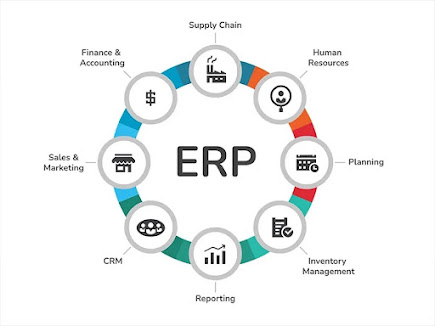Enterprise Resource Planning (ERP) is a software system that helps businesses manage their day-to-day operations by integrating various departments into a single, unified system.
ERP has become an essential tool for businesses worldwide, including those in Kuwait. In this article, we will explore the benefits of ERP in accounting, and answer some frequently asked questions.
What is ERP in Accounting?
ERP in accounting is a software system that integrates financial information from various departments into a single, centralized system. It automates financial transactions, improves accuracy, and provides real-time visibility into the company's financial performance. It also eliminates the need for manual data entry and streamlines financial reporting.
What are the Benefits of ERP in Accounting?
ERP provides many benefits to businesses in Kuwait, including:
a. Increased Efficiency: ERP automates financial processes, reducing the time and effort required for manual data entry, and eliminating the need for multiple systems. This allows accounting teams to focus on more value-added tasks such as analysis and decision-making.
b. Improved Accuracy: ERP provides a single source of truth for financial data, reducing the risk of errors and ensuring that financial information is accurate and up-to-date.
c. Better Financial Reporting: ERP provides real-time visibility into financial performance, allowing businesses to make informed decisions based on accurate and up-to-date information. It also provides customizable financial reports that can be easily accessed and shared with stakeholders.
d. Increased Compliance: ERP helps businesses comply with financial regulations by providing automated controls and audit trails. This reduces the risk of non-compliance and the associated fines and penalties.
e. Reduced Costs: ERP eliminates the need for multiple systems and manual data entry, reducing the time and effort required for financial processes. This results in cost savings for the business.
How does ERP in Accounting Work?
ERP in accounting integrates financial data from various departments into a single, centralized system. It automates financial processes, such as invoicing, payment processing, and financial reporting. It also provides real-time visibility into financial performance, allowing businesses to make informed decisions based on accurate and up-to-date information.
What are the Key Features of ERP in Accounting?
The key features of ERP in accounting include:
a. Financial Management: ERP provides a comprehensive suite of financial management tools, including general ledger, accounts payable, accounts receivable, and cash management.
b. Financial Reporting: ERP provides customizable financial reports that can be easily accessed and shared with stakeholders.
c. Auditing and Compliance: ERP provides automated controls and audit trails to help businesses comply with financial regulations.
d. Integration: ERP integrates financial data from various departments into a single, centralized system.
e. Real-time Visibility: ERP provides real-time visibility into financial performance, allowing businesses to make informed decisions based on accurate and up-to-date information.
How can ERP in Accounting Benefit Kuwaiti Businesses?
ERP in accounting can benefit Kuwaiti businesses in many ways, including:
a. Improved Efficiency: ERP automates financial processes, reducing the time and effort required for manual data entry and eliminating the need for multiple systems.
b. Better Financial Reporting: ERP provides real-time visibility into financial performance, allowing businesses to make informed decisions based on accurate and up-to-date information.
c. Increased Compliance: ERP helps businesses comply with financial regulations by providing automated controls and audit trails.
d. Reduced Costs: ERP eliminates the need for multiple systems and manual data entry, reducing the time and effort required for financial processes.
Conclusion
ERP in accounting is an essential tool for businesses in Kuwait. It provides many benefits, including increased efficiency, improved accuracy, better financial reporting, increased compliance, and reduced costs. By implementing ERP in accounting, Kuwaiti businesses can streamline their financial processes and make informed decisions based on accurate and up-to-date information.


Comments
Post a Comment